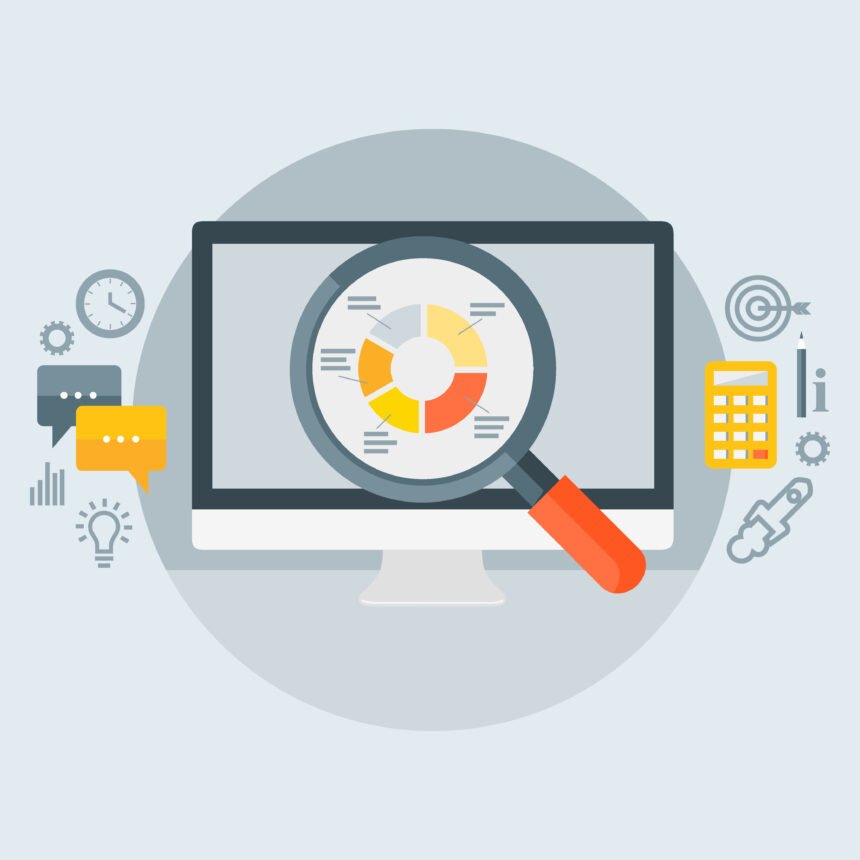There’s a big difference, however, between knowing that customer data is valuable and knowing how to go about collecting that data in a way that is efficient and effective. In this article, we’ll cover seven strategies for collecting customer data in ways that make them happy to provide it.
Employ Analytic Tools on Your Website
You can gather a lot of data about the behaviors of the people visiting your site without ever having to ask them for it by making use of analytic tools such as Google Analytics. These tools will tell you who is visiting your site, what pages they are visiting, what actions they take on those pages, how long they stay on each page, and much more. All of this data amounts to information that you can use to hone your website and optimize it for conversions by figuring out what content is working well and what isn’t.
Send Your Audience Surveys
A lot of people actually enjoy filling out surveys when presented with the opportunity because it makes them feel as if their opinions are being heard. If you want to know what your audience thinks about a specific feature, product, topic, or more, use a survey tool such as SurveyMonkey to create surveys that you can then share with your social media followers and email list. You can also include the survey as a popup on your website to gather information from visitors whose contact info you haven’t yet acquired.
Track Your Advertising Campaigns
Online advertising platforms such as Google Adwords offer plenty of value to businesses looking to reach new customers. If you aren’t tracking the results of these campaigns and gathering data from them, though, you’re missing out on a lot of the value that they offer. There’s a lot of data to be gathered from advertising campaigns that will help you improve future campaigns such as the click rate of various ads as well as the conversion rate once a visitor ends up on your landing page.
Collect Information During Customer Service
Data about positive customer experiences is naturally more enjoyable to collect, but data about negative customer experiences can be every bit as valuable as you refine your business going forward. Create a list of questions that your customer service reps can ask when a customer contacts them with a complaint or issue and organize the responses to those questions in a way that enables you to understand if there is any underlying trend behind your customer complaints that needs to be addressed.
Find Out Your Referral Sources
If you’ve every purchased a product or service and seen a question along the lines of “how did you hear about us?” as part of the information you are asked to fill out, you’ve seen an example of a business that knows the importance of finding out their referral sources. Knowing where your customers are coming from before they convert on your website enables you to better understand where your target customer spends their time online as well as better understand which marketing tactics are delivering you sales and which ones aren’t. Best of all, customers typically have no issue with telling a company who referred them since this does not feel like personal information in the way that many data points do.
Data Collected from a Sale
When you sell a customer a product, there are several data points that you will naturally collect such as their name and location for shipping purposes. While these data points are essential for completing the sale, they also are able to provide some insight about your target customer. For instance, knowing the name of the person who purchased your product will likely be able to tell you their gender. Likewise, knowing their shipping address will tell you their geography. Just these two data points alone will go a long way toward building a profile of your target customer. Of course, you can always request more data during the checkout process, however, you’ll need to be careful – the last thing you want to do is encourage an abandoned cart by asking customers to fill out too much information during checkout.
Track Engagement on Social Media Posts
People share more of themselves on social media than they do anywhere else online. It follows, then, that social media is the best place to go to learn more about your customers. Track their engagement on posts you share to figure out where their interests lie and how they respond to various content. You can gather even more information by analyzing the comments on your posts and grouping them into categories such as “negative reactions vs positive reactions” or categories based on the demographics of the people commenting. You may even wish to create a post that serves as a sort of survey by requesting your followers to voice their answer in the comments to a question that you ask them.
Conclusion
If you know where to look, valuable data about your customers and audience isn’t inherently hard to find. Once you’ve acquired a large amount of data about your target customer and how they respond to various content, you, your employees, and your team of freelancers can use that data to refine your marketing approach and overall business strategy.










